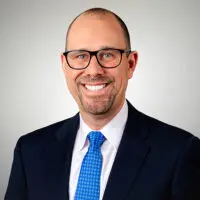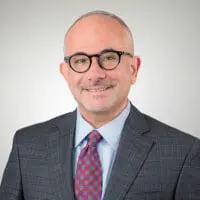Publication
United States Attorney’s Offices Announce Innovative Voluntary Self-Disclosure Programs for Individuals
By James Melendres, Joseph Adams, Aloke Chakravarty, Kourtney George, and Brett W. Johnson
Last year, on February 22, 2023, the Department of Justice (DOJ) announced a corporate Voluntary Self-Disclosure (VSD) policy, which is applicable to all U.S. Attorney’s Offices, setting nationwide incentives for voluntary corporate disclosures. Early reports on the benefits of these policies led U.S. Attorney’s Offices to implement expanded self-disclosure programs of their own. The Southern District of New York (SDNY), and more recently the Northern District of California (NDCA), are leading this innovative charge by promoting initiatives that are, in essence, voluntary self-disclosure programs with incentives for individual disclosures.
The SDNY Program
On January 10, 2024, the SDNY announced a Whistleblower Pilot Program (SDNY Program) that is modeled on the DOJ policies that encourage companies to self-disclose misconduct in the corporate context and extends the policy to individuals. Specifically, it “encourage[s] early voluntary self-disclosure of criminal conduct” in exchange for possible non-prosecution agreements (NPAs) for individuals.
In practice, the SDNY Program applies to cooperating individuals who provide information to the SDNY about criminal conduct involving: (i) fraud, corporate control failures, or other acts affecting market integrity undertaken by or through public or private companies, exchanges, financial institutions, investment advisors, or investment funds; or (ii) state or local bribery or fraud involving federal, state, or local funds.
Moreover, there are certain requirements that must be satisfied for an individual to qualify for the program:
- The information must not be public or be previously known to any component of the SDNY;
- The information must be provided voluntarily (rather than in response to a government inquiry or reporting obligation);
- The cooperating individual must truthfully and completely disclose all criminal conduct in which the individual participated, and of which the individual is aware;
- The cooperating individual must be able to provide substantial assistance to the SDNY in its investigation and prosecution of one or more culpable persons, and must be prepared to cooperate fully with the SDNY;
- The cooperating individual must not be an elected/appointed government official; an agent/official of a federal law enforcement or investigative agency; a CEO or CFO (or equivalent) of a company; and
- The cooperating individual must not have engaged in certain forms of criminal conduct (including but not limited to offenses that involve force, violence, or terrorism) and must not have a previous felony conviction or any conviction involving fraud or dishonesty.
The SDNY exclusively retains the right to determine whether an individual has met the above requirements and whether to enter into an NPA in exchange for the individual’s cooperation.
The NDCA Policy
The NDCA has announced it will roll out a whistleblower program similar to the SDNY Program that will additionally address intellectual property issues. We expect to have more comprehensive details regarding the NDCA plan in the coming days.
These new pilot programs reflect the DOJ’s growing emphasis on encouraging voluntary reporting, and, while it is too early to know how many reports will be generated through these programs, it is likely that other U.S. Attorney’s Offices will follow suit.
Potential Considerations
Given that these programs focus on financial fraud, public companies and financial institutions in particular, should take heed. Companies should consider the following actions:
- Companies should structure and maintain robust compliance programs to ensure that serious misconduct is detected and remediated quickly.
- Companies should evaluate their policies to ensure that employees have clear and accessible reporting channels that allow for misconduct to be reported easily and anonymously. Companies should also ensure that employees have the necessary training regarding these channels so they can be effectively utilized.
- Companies should take prompt and appropriate action to investigate such reports, with escalation where appropriate.
- Companies should consider proactive audit programs to test the compliance programs effectiveness.
- In regard to investigations or audits, companies should ensure that they maintain appropriate attorney-client privileges.
- In the event that a potential anonymous whistleblower is identified as a part of an investigation, evaluate appropriate employment law protocols and address any concerns about potentially interfering with a governmental investigation.
- Where companies do detect misconduct that may rise to criminal liability, companies should consider whether a voluntary self-disclosure is appropriate, preempting a whistleblower’s report to the government, and maintaining its eligibility for the benefits offered for such disclosures.
About Snell & Wilmer
Founded in 1938, Snell & Wilmer is a full-service business law firm with more than 500 attorneys practicing in 17 locations throughout the United States and in Mexico, including Los Angeles, Orange County, Palo Alto and San Diego, California; Phoenix and Tucson, Arizona; Denver, Colorado; Washington, D.C.; Boise, Idaho; Las Vegas and Reno, Nevada; Albuquerque, New Mexico; Portland, Oregon; Dallas, Texas; Salt Lake City, Utah; Seattle, Washington; and Los Cabos, Mexico. The firm represents clients ranging from large, publicly traded corporations to small businesses, individuals and entrepreneurs. For more information, visit swlaw.com.





